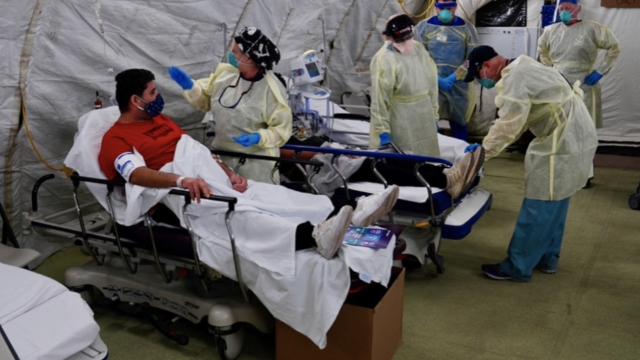IV treatments of lab-created monoclonal antibodies are meant for the early stages of infection, to help patients in danger of getting severely sick recover from COVID-19.
For Ken Wells in Arizona, it made all the difference. "It's kind of designed to keep you out of the hospital is what I understand it to be. So, if that's the purpose of it all, it helped me," he said.
"An antibody that's infused into the body that's been designed in a laboratory to directly attack the COVID virus. So, very similar to how your immune system would work," said Dr. Devin Minior, chief medical officer at Banner Health.
In cities like El Centro, California, Tucson, Arizona, and Las Vegas, Nevada, federally supported infusion centers have sprung up. But in parts of the country large amounts of the treatment are sitting unused.
Some possible reasons why: The therapy is only approved for a small group: non-hospitalized, high-risk patients with underlying conditions and mild to moderate symptoms. It’s not meant for hospitalized patients with severe cases, nor for younger or healthier patients.
Also, as new variants — mutated versions of the virus — continue to spread there’s some worry the treatments won’t work.
"A number of papers are coming out on the pre-print journals that are showing that when it comes to the monoclonal antibodies, several of them are completely negated in their efficacy by the [South African] mutation," said Dr. Anthony Fauci, director of the National Institute of Allergy and Infectious Diseases.
That being said, experts say that more vaccines and more treatments like antibodies will make a much needed dent in the pandemic fight.
"The only way to slow the pace of development of mutations is to continue to do what we’re doing," Dr. John Hammer, infectious disease specialist at Rose Medical Center, said.


